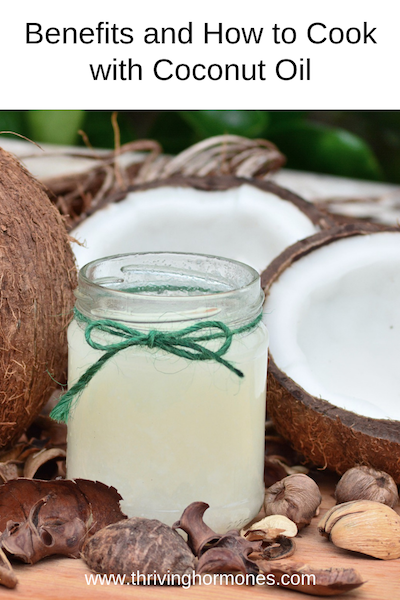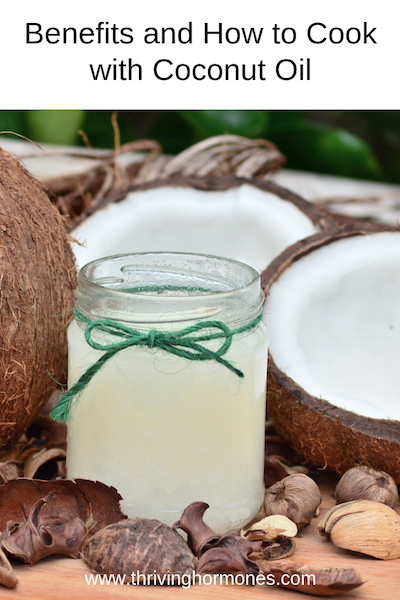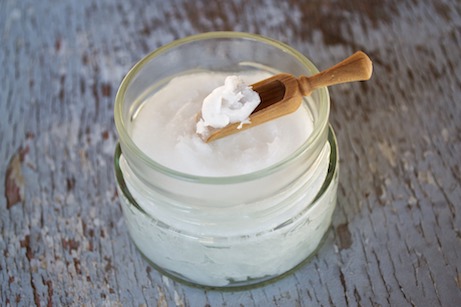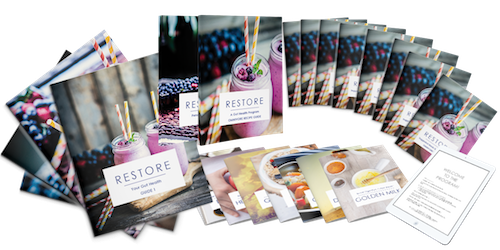Benefits and How to Cook with Coconut Oil
I’m a chef and I use coconut oil all the time in the kitchen. I love to cook with coconut oil and coconut is one of my favorite flavors I can’t live without it. Here are some benefits of coconut oil as well as some tips on how to cook with it.
Weight Control
Coconut oil helps to control weight, and the consumption of coconut oil has been found to reduce abdominal obesity. Coconut is easy to digest, burns quickly and also protects the body from insulin resistance. The short and medium-chain fatty acids in coconut oil help with taking off excessive weight. Also, the fatty acids help with the healthy functioning of the thyroid and endocrine system. Coconut oil can help increase the body’s metabolic rate by removing stress from the pancreas, and because of that it helps burn more energy and helps overweight people lose weight. Hence, people living in tropical coastal areas, who use coconut oil every day as their primary cooking oil, are normally not obese or overweight.
Seizures
Coconut oil also is helpful in reducing seizures. A ketogenic diet helps with that, and it is a low carb diet that is very high in fat, which leads to increased concentrations in ketone bodies in the blood. This type of diet helps reduce the rate of seizures in epileptic children.
Digestion
Coconut oil helps to ease digestion. People that suffer from digestive issues may want to add coconut oil to their diets. Coconut oil is helpful with different digestive disorders including IBS and microbial stomach bugs, because of the fatty acids coconut oil contain are antimicrobials, and have a soothing effect on bacteria, candida, and even parasites that cause poor digestion. Coconut oil also helps us absorb other nutrients such as vitamins, minerals, and amino acids. Coconut oil consists of saturated fats (Don’t panic! It’s not as bad as it sounds), along with traces of few unsaturated fatty acids, such as monounsaturated fatty acids and polyunsaturated fatty acids. Virgin coconut oil is no different from this. Below is further information about fatty acids in coconut oil.
- Saturated fatty acids: most of these are medium-chain triglycerides. Lauric acid is the chief contributor, representing more than forty percent of the total saturated fatty acids, followed by capric acid, caprylic acid, myristic acid and palmitic.
- Polyunsaturated fatty acids: Linoleic acid.
- Monounsaturated fatty acids: Oleic acid.
- Poly-phenols: Coconut contains Gallic acid, which is also known as phenolic acid. These polyphenols are responsible for the fragrance and the taste of coconut oil. Virgin Coconut Oil is rich in polyphenols.
Certain derivatives of fatty acids like betaines, ethanolamide, ethoxylates, fatty esters, fatty polysorbates, monoglycerides, and polyol esters. Fatty chlorides, fatty alcohol sulfate, and fatty alcohol ether sulfate, all of which are derivatives of fatty alcohols. Vitamin E, vitamin K, and minerals such as iron.
Cooking with Coconut Oil
Why is coconut oil so good for cooking? Coconut oil has a high melting point – about 24 to 25 degrees Celsius or 76-78 Fahrenheit. Therefore it’s solid at room temperature and melts only when the temperature rises considerably. Hence, if you buy a bottle of coconut oil and find it solid, don’t immediately assume that there is a problem with it. Coconut oil, because of the saturated fat, can handle higher temperatures than other oils, making it one of the best oils for cooking. For best quality use organic extra-virgin coconut oil.
Coconut Butter, Coconut Manna
Coconut butter, which is made from the whole coconut. It is a little sweet so it can serve as a perfect snack or dessert. You can also use it in cooking, baking or as a butter substitute on toast. A great addition to smoothies.
You don’t need to completely switch to coconut oil because traditional oils also have excellent benefits. Olive oils are best for salad and lose their nutritional value when they are heated. Heat, along with light and oxygen, can destroy the beneficial fats in some oils. Polyunsaturated fats are the most fragile and are not recommended for cooking. Coconut oil is also an excellent addition to blending with smoothies, as a spread on toast (it makes fantastic cinnamon toast), or as a topping on popcorn.
Baking with Coconut Oil
To bake with coconut oil, replace other oils or butter at a 1:1 ratio. For shortening, replace 1 part shortening with 3/4 part coconut oil. Melt coconut oil and use it in its liquid state to replace vegetable oil and butter. For Coconut oil to mix well the rest of your ingredients need to be at room temperature. For flaky baked products use coconut oil at room temperature.
Always look for certified organic, either virgin (unrefined) or refined (refined has no coconut flavor). Organic virgin coconut oil has a light coconut aroma and a more defined coconut flavor. If you don’t care for the taste or smell of coconut, but you want the benefits of the oil, the refined organic version is a perfect choice. It stands up beautifully to high heat and doesn’t impart a coconut flavor or aroma. Stir a spoonful into hot cooked soups, stir-fry, stews and chilies.
Coconut Oil’s Tasty Uses for Cooking, Spreading and More!
- Scramble eggs in coconut oil, or melt over hot, poached eggs
- Use for making crackers
- Stir or cook into curry dishes
- Make pancakes with coconut oil
- Spread over French toast,
* Bake muffins with it or make pancakes, and waffles.
- Sauté favorite veggies in coconut oil – potatoes are super tasty this way
- Add to cooked legumes and spices for a quick, delicious meal – great to use with your canned beans or lentils!
- Rub a chicken or beef with coconut oil
* Add it to your smoothies
- Pan-fry fish in coconut oil
- Add it to your coffee
- Make hot cocoa and stir in coconut manna
Do you use coconut oil? Got a recipe or great tip? Let me know.
In Health,
Angie





